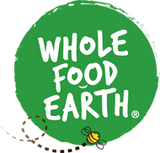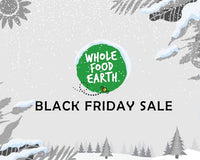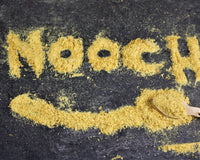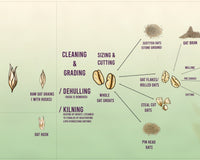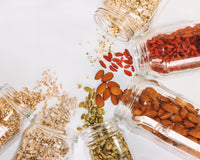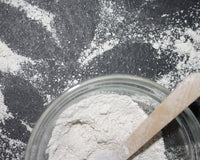What is Nutritional Yeast Made Of?
Every week we receive questions about what Nutritional Yeast is, and specifically what Nutritional Yeast is made of.
Nutritional Yeast is an ingredient in it’s own right, it’s a form of dried inactive yeast. Most commonly a strain of ‘Saccharomyces Cerevisiae’, the same type of yeast used for baking, winemaking, and brewing beer, in the same family as edible mushrooms.
While Nutritional Yeast is usually cultivated, fortified, harvested, washed, and dried under controlled conditions, it is a natural product. ‘Saccharomyces Cerevisiae’ can be observed most commonly on the skin of dark fruits (such as plums) where it appears as a thin white layer along with waxes of the cuticle.
Nutritional Yeast grows as a Ascomycota Fungi via the asexual reproduction technique of budding. Nutritional Yeast is grown on a mixture of glaucous from cane and beet molasses for a week.
Where Does the B12 In Nutritional Yeast Come From?
As you may know, yeast does not produce B12. Only certain types of bacteria can produce B12. As such, you may be wondering where the high level of B12 commonly found in Nutritional Yeast comes from.
On the market, there are typically two types of Nutritional Yeast, unfortified, and, more commonly, fortified such as the Nutritional Yeast available to buy online from Wholefood Earth.
While vitamin B1 and B2 are typically intrinsically present within nutritional yeast, B12 is resourced from cyanocobalamin, a manufactured form of B12 with the same chemical formula as naturally occurring B12 (cobalamin) .
The process of fortification (the enhancement of micronutrients. In this case, specifically B-12) is typically performed after harvesting, prior to the drying process.
Why is Nutritional Yeast Commonly Fortified with B12
The most commonly consumed high density sources of B12 are Eggs, Chicken, Beef, Liver, Cheese, and Milk. All of which are not available to the vegan diet. As such, Nutritional Yeast as well as some breakfast cereals are fortified with B12 to make it more accessible to those living a vegan lifestyle.
Nutritional Yeast fortified with B12 makes sense from a market proposition standpoint too. A common complaint amongst vegans is missing the flavour of cheese, this is also a barrier to becoming vegan for many. Nutritional Yeast has a similar taste profile to cheese. Concurrently, a common health concern for vegans is lack of vitamin B12. As such fortifying Nutritional Yeast with B12 is an efficient solution to both the question of flavour and nutrition.
Nutritional Yeast Nutritional Information
The nutritional information below is for Wholefood Earth: Nutritional Yeast Flakes.
|
Typical Values |
Per 100g |
|
Energy (kcals) |
351 Kcal |
|
Energy (kj) |
1469 Kj |
|
Protein |
47 g |
|
Fat |
4.8 g |
|
- Of Which Saturates |
0.9 g |
|
Carbohydrates |
40.3 g |
|
- Of Which Sugars |
12.4 g |
|
Sodium |
88 mg |
|
Fibre |
20.5 g |
|
Calcium |
72 mg |
|
Iron |
4 mg |
|
Zinc |
247 mg |
|
Potassium |
2500 mg |
|
Vitamin A |
< 100 IU |
|
Vitamin C |
< 3 mg |
|
Vitamin D |
0 IU |
|
Thiamine HCI (B1) |
14 mg |
|
Riboflavin (B2) |
55 mg |
|
Niacin |
266 mg |
|
Pantothenic acid |
99 mg |
|
Pyridoxine (B6) |
23 mg |
|
Biotin |
23 mcg |
|
Folic acid |
2150 mcg |
|
Cobalamin (B12) |
108 mcg |
